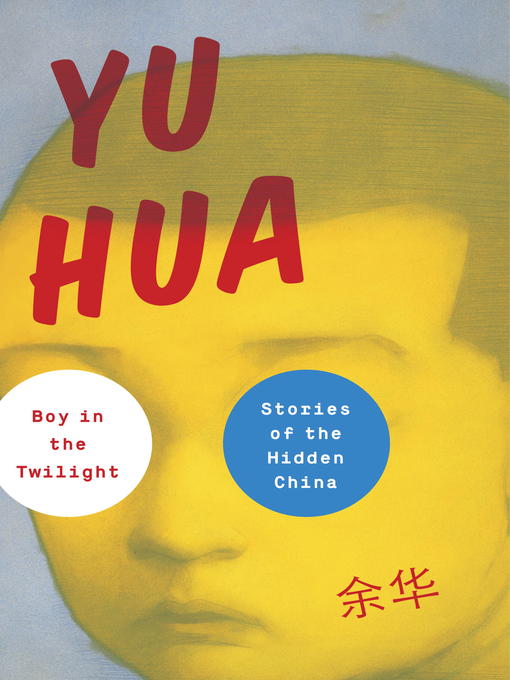
Boy in the Twilight
Stories of the Hidden China
کتاب های مرتبط
- اطلاعات
- نقد و بررسی
- دیدگاه کاربران
نقد و بررسی

September 30, 2013
The subtitle of Hua’s (To Live: A Novel) collection, “Stories of the Hidden China,” appears to refer to the China of ordinary people, not that of the new plutocrats, corrupt officials and their spoiled children, or high-profile political artists like Ai Wei Wei. The prolific Hua is interested in unimportant people—mostly men—and the events (sometimes small, sometimes large) that force them to reconsider their situations. In “Their Son,” a factory worker who frequently finds himself stuck on overcrowded buses finds out that the son he’s putting through college casually takes taxis; in “Why There Was No Music,” a man borrows some videos from a friend only to find out they’re homemade; in several stories, men try, with varying results, to escape from their wives, or to cope with bullying and violence. The stories often feel like fables: what’s memorable isn’t the characters, but their circumstances, like the punishment for theft in the title story, or the running abuse suffered by the protagonist—if that word can be used for someone with so little control over his life—of “No Name of My Own.” And, like fables, the stories can feel schematic—as in the final revelation in the longest story, “Timid as a Mouse,” what happens is what needs to happen to make the tale complete, rather than something that reveals the characters’ particularities.

November 1, 2013
Thirteen new translations of stories by one of China's most outspoken critics of the Cultural Revolution. Hua (China in Ten Words, 2011, etc.) can be hard to put into context since his work comes out in fits and starts due to the peculiarities of translation. These stories date from the mid-1990s and examine the lives of modern Chinese men and women through the prism of cynicism and violence. That subtext of violence appears in several stories, including the title story, where a boy's finger is broken, and the final story, "Friends," which ends with a no-holds-barred fistfight. Drunken revelry marks "Mid-Air Collisions." "What a wonderful time that was, when we walked forever through the streets, singing our heads off; when we muttered dirty remarks as we checked out the pretty girls; when we smashed the street lamps all along the block; when we knocked on doors in the middle of the night and ran away..." Hua writes. The stories about relationships between husbands and wives are harder to take. "Why There Was No Music" finds cuckolded husband Horsie visiting a friend, Guo Bin, while his wife, Lu Yuan, is out of town. Horsie borrows three videos: a romance, a thriller and a pornographic video that turns out to feature Lu Yuan and Guo Bin. "Victory" finds a woman driven to the verge of divorce from the simple discovery of a hidden key, while "Why Do I Have to Get Married?" finds a young woman trying to serve as marriage counselor to a savagely fighting couple. The stories are spare and minimalist and quite well-composed, but the punctuation of violence and mistrust in them give them a disquieting tension. Menacing vignettes from a crowded, hardhearted corner of the globe.
COPYRIGHT(2013) Kirkus Reviews, ALL RIGHTS RESERVED.

Starred review from October 15, 2013
Recipient of the James Joyce, Prix Courrier International, and Premio Grinzane Cavour awards for novels such as To Live (adapted to film by director Zhang Yimou) and Brothers, short-listed for the Man Asian Prize, Yu is an international sensation. His latest collection comprises 13 stories, written between 1993 and 1998, that offer a laconic, piercing glimpse into the daily life of citizens living in post-Mao China. In "No Name of My Own," a mentally challenged young man loses his one true companion to neighborhood bullies. A hungry boy is brutally punished by a fruit vendor in the titular "Boy in the Twilight"; by acute contrast, a groceries kiosk proprietor watches the playful son of doting parents who repeatedly appear at the hospital entrance across the street in "The Skipping-and-Stepping Game." The sanctity of marriage gets trampled, challenged, and mocked in "Why There Was No Music" and others. The longest story, "Timid as a Mouse," in which a long-ridiculed young man finally decides to strike back, proves the most indelible. VERDICT Aficionados of the short form will savor these stories as both adroit literature and a sharp cultural lens. Appreciative readers of such diverse recent collections as Emma Donoghue's Astray and Yoko Ogawa's Revenge will want to add this title to waiting shelves. [See Prepub Alert, 7/22/13.]--Terry Hong, Smithsonian BookDragon, Washington, DC
Copyright 2013 Library Journal, LLC Used with permission.

October 15, 2013
The subtitle of Yu's indelible collection focuses on what he terms the hidden China, and yet each entry is significant for its celebration of the Everyman and Everywomanhusbands, wives, children, parents, friends, loverswhose frustrations and desires, quandaries and quotidian experiences seem, if not obviously universal, then familiar enough to resonate with a transcendent affinity. Victory explores the emotional fallout from a husband's betrayal and a wife's revenge as their marriage implodes before the very eyes of the other woman, while in Mid-Air Collisions a group of friends pays an innocent visit to another pal, only to have the encounter dissolve around a trumped-up charge of adultery. Not all of Yu's tales, however, deal with the vagaries of romantic relationships. The title story depicts a man coping with the loss of his family through a horrific act of brutality. Indeed, a disturbing strain of malevolence connects much of the collection, yet Yu's acute observations are rendered with a simplicity that belies such complex emotions.(Reprinted with permission of Booklist, copyright 2013, American Library Association.)

























دیدگاه کاربران